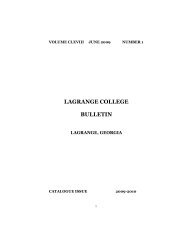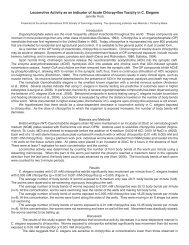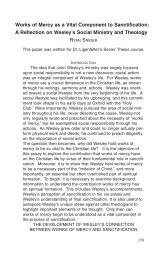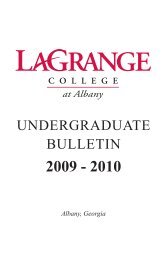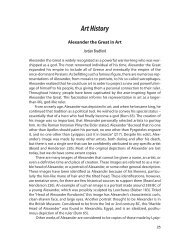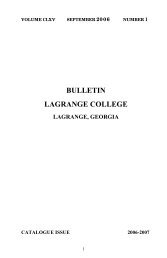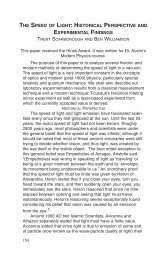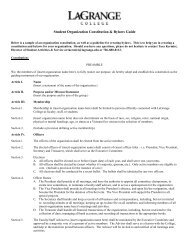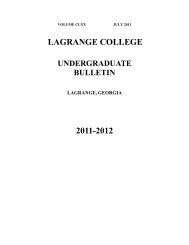History Gorbachev's Perestroika and the Collapse of the Soviet Union
History Gorbachev's Perestroika and the Collapse of the Soviet Union
History Gorbachev's Perestroika and the Collapse of the Soviet Union
Create successful ePaper yourself
Turn your PDF publications into a flip-book with our unique Google optimized e-Paper software.
a h<strong>and</strong>ful <strong>of</strong> different ethnic groups. These groups had different languages, cultures<br />
<strong>and</strong> histories <strong>and</strong> each wanted to maintain <strong>the</strong>ir cultural identity within <strong>the</strong> <strong>Soviet</strong><br />
bloc. 12 While <strong>the</strong> government attempted to unite <strong>the</strong> people under <strong>the</strong> <strong>Soviet</strong> flag,<br />
<strong>the</strong>y failed to inspire a sense <strong>of</strong> <strong>Soviet</strong> nationalism in <strong>the</strong> people. Cultural nationalism<br />
was at play <strong>and</strong> eroded <strong>the</strong> cohesion between <strong>the</strong> <strong>Soviet</strong> government <strong>and</strong> <strong>the</strong><br />
various peoples, which threatened <strong>the</strong> power <strong>and</strong> oppressive force <strong>of</strong> <strong>the</strong> regime.<br />
It was against this backdrop <strong>of</strong> economic decline <strong>and</strong> political instability<br />
that Mikhail Gorbachev came to power. The ascension <strong>of</strong> Gorbachev to <strong>the</strong> position<br />
<strong>of</strong> General Secretary <strong>of</strong> <strong>the</strong> Communist Party represented a new age in <strong>Soviet</strong><br />
politics. He came to <strong>the</strong> position in 1985, following <strong>the</strong> death <strong>of</strong> Chernenko a mere<br />
year after his appointment as head <strong>of</strong> <strong>the</strong> party. At <strong>the</strong> time, he was fifty four years<br />
old, which made him <strong>the</strong> youngest General Secretary since Stalin. 13 His comparative<br />
youth gave him a different perspective from prior leaders <strong>and</strong> allowed him to<br />
move away from Stalinist thinking because his rise in <strong>the</strong> party was not connected<br />
to direct participation in <strong>the</strong> 1917 Revolution. 14 Gorbachev hailed from “a peasant<br />
family that was one <strong>of</strong> <strong>the</strong> first in <strong>the</strong> [Nor<strong>the</strong>rn Caucasus] region to join a collective<br />
farm.” 15 This humble background played a large role in his political thinking <strong>and</strong> gave<br />
him a strong humanitarian sympathy. His separation from <strong>the</strong> old regime gave him<br />
greater freedoms to move away from old thinking <strong>and</strong> enact policies grounded in a<br />
new way <strong>of</strong> thinking. According to George Breslauer, Gorbachev faced different circumstances<br />
when assuming power than his predecessors had because <strong>the</strong> people<br />
were calling out for “vigorous leadership to push <strong>the</strong> country in new directions.” 16<br />
At <strong>the</strong> same time, this calling out for change facilitated Gorbachev’s departure from<br />
Stalinist policies. It was apparent that Stalinist thinking did not work <strong>and</strong> a shift in<br />
ideology needed to occur in order to save <strong>the</strong> system from within.<br />
Quickly after becoming General Secretary, Gorbachev was faced “with an<br />
avalanche <strong>of</strong> problems. It was vital to change [<strong>the</strong>] relationship with <strong>the</strong> West, particularly<br />
<strong>the</strong> United States, <strong>and</strong> to bring <strong>the</strong> costly <strong>and</strong> dangerous arms race to an<br />
<br />
<br />
Laura Cummings



